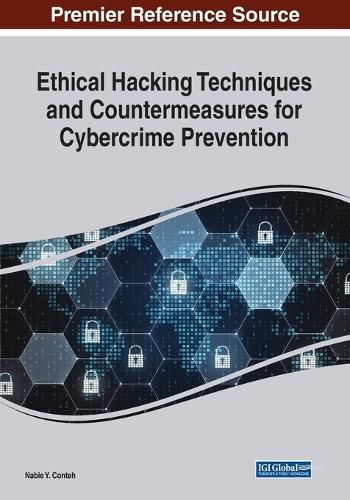Readings Newsletter
Become a Readings Member to make your shopping experience even easier.
Sign in or sign up for free!
You’re not far away from qualifying for FREE standard shipping within Australia
You’ve qualified for FREE standard shipping within Australia
The cart is loading…






This title is printed to order. This book may have been self-published. If so, we cannot guarantee the quality of the content. In the main most books will have gone through the editing process however some may not. We therefore suggest that you be aware of this before ordering this book. If in doubt check either the author or publisher’s details as we are unable to accept any returns unless they are faulty. Please contact us if you have any questions.
As personal data continues to be shared and used in all aspects of society, the protection of this information has become paramount. While cybersecurity should protect individuals from cyber-threats, it also should be eliminating any and all vulnerabilities. The use of hacking to prevent cybercrime and contribute new countermeasures towards protecting computers, servers, networks, web applications, mobile devices, and stored data from black hat attackers who have malicious intent, as well as to stop against unauthorized access instead of using hacking in the traditional sense to launch attacks on these devices, can contribute emerging and advanced solutions against cybercrime.
Ethical Hacking Techniques and Countermeasures for Cybercrime Prevention is a comprehensive text that discusses and defines ethical hacking, including the skills and concept of ethical hacking, and studies the countermeasures to prevent and stop cybercrimes, cyberterrorism, cybertheft, identity theft, and computer-related crimes. It broadens the understanding of cybersecurity by providing the necessary tools and skills to combat cybercrime. Some specific topics include top cyber investigation trends, data security of consumer devices, phases of hacking attacks, and stenography for secure image transmission. This book is relevant for ethical hackers, cybersecurity analysts, computer forensic experts, government officials, practitioners, researchers, academicians, and students interested in the latest techniques for preventing and combatting cybercrime.
$9.00 standard shipping within Australia
FREE standard shipping within Australia for orders over $100.00
Express & International shipping calculated at checkout
This title is printed to order. This book may have been self-published. If so, we cannot guarantee the quality of the content. In the main most books will have gone through the editing process however some may not. We therefore suggest that you be aware of this before ordering this book. If in doubt check either the author or publisher’s details as we are unable to accept any returns unless they are faulty. Please contact us if you have any questions.
As personal data continues to be shared and used in all aspects of society, the protection of this information has become paramount. While cybersecurity should protect individuals from cyber-threats, it also should be eliminating any and all vulnerabilities. The use of hacking to prevent cybercrime and contribute new countermeasures towards protecting computers, servers, networks, web applications, mobile devices, and stored data from black hat attackers who have malicious intent, as well as to stop against unauthorized access instead of using hacking in the traditional sense to launch attacks on these devices, can contribute emerging and advanced solutions against cybercrime.
Ethical Hacking Techniques and Countermeasures for Cybercrime Prevention is a comprehensive text that discusses and defines ethical hacking, including the skills and concept of ethical hacking, and studies the countermeasures to prevent and stop cybercrimes, cyberterrorism, cybertheft, identity theft, and computer-related crimes. It broadens the understanding of cybersecurity by providing the necessary tools and skills to combat cybercrime. Some specific topics include top cyber investigation trends, data security of consumer devices, phases of hacking attacks, and stenography for secure image transmission. This book is relevant for ethical hackers, cybersecurity analysts, computer forensic experts, government officials, practitioners, researchers, academicians, and students interested in the latest techniques for preventing and combatting cybercrime.